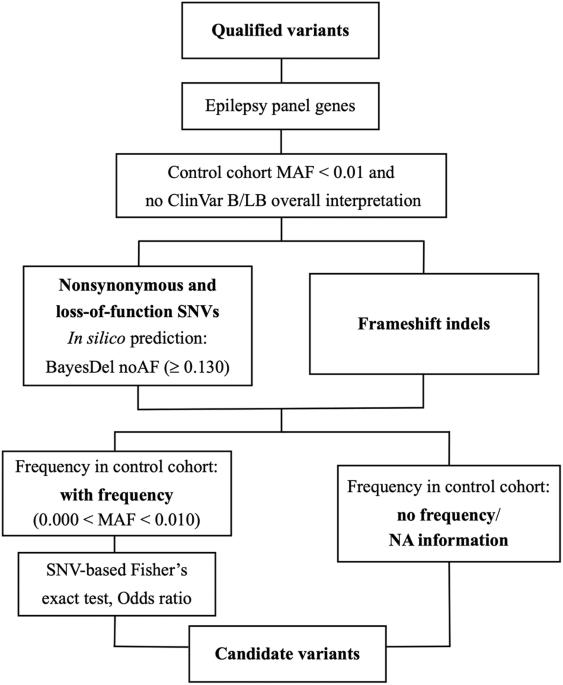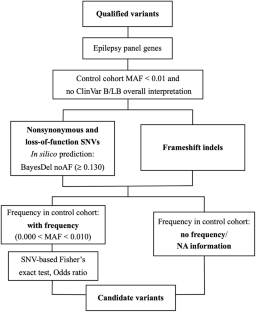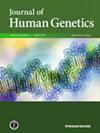Identification of potential disease-associated variants in idiopathic generalized epilepsy using targeted sequencing
IF 2.6
3区 生物学
Q2 GENETICS & HEREDITY
引用次数: 0
Abstract
Many questions remain regarding the genetics of idiopathic generalized epilepsy (IGE), a subset of genetic generalized epilepsy (GGE). We aimed to identify the candidate coding variants of epilepsy panel genes in a cohort of affected individuals, using variant frequency information from a control cohort of the same region. We performed whole-exome sequencing analysis of 121 individuals and 10 affected relatives, focusing on variants of 950 candidate genes associated with epilepsy according to the Genes4Epilepsy curated panel. We identified 168 candidate variants (CVs) in 137 of 950 candidate genes in 88 of 121 affected individuals with IGE, of which 61 were novel variants. Notably, we identified five CVs in known GGE-associated genes (CHD2, GABRA1, RORB, SCN1A, and SCN1B) in five individuals and CVs shared by affected individuals in each of four family cases for other epilepsy candidate genes. The results of this study demonstrate that IGE is a disease with high heterogeneity and provide IGE-associated CVs whose pathogenicity should be proven by future studies, including advanced functional analysis. The low detection rate of CVs in the GGE-associated genes (4.1%) in this study suggests the current incompleteness of the Genes4Epilepsy panel for the diagnosis of IGE in clinical practice.


使用靶向测序鉴定特发性全身性癫痫的潜在疾病相关变异。
遗传性全身性癫痫(GGE)的一个子集,特发性全身性癫痫(IGE)的遗传学仍然存在许多问题。我们的目的是利用来自同一地区对照队列的变异频率信息,在一组受影响个体中确定癫痫面板基因的候选编码变体。我们对121名个体和10名受影响的亲属进行了全外显子组测序分析,重点关注与癫痫相关的950个候选基因的变异。我们在121名IGE患者中的88名患者的950个候选基因中的137个中鉴定出168个候选变异(CVs),其中61个为新变异。值得注意的是,我们在5个个体中发现了5个已知的ge相关基因(CHD2、GABRA1、RORB、SCN1A和SCN1B)的cv,并且在4个癫痫候选基因的家族病例中,受影响个体的cv都是相同的。本研究结果表明IGE是一种具有高度异质性的疾病,并提供了IGE相关的cv,其致病性有待于未来的研究,包括高级功能分析。本研究中IGE相关基因的CVs检出率较低(4.1%),表明目前在临床实践中,用于IGE诊断的Genes4Epilepsy面板尚不完整。
本文章由计算机程序翻译,如有差异,请以英文原文为准。
求助全文
约1分钟内获得全文
求助全文
来源期刊

Journal of Human Genetics
生物-遗传学
CiteScore
7.20
自引率
0.00%
发文量
101
审稿时长
4-8 weeks
期刊介绍:
The Journal of Human Genetics is an international journal publishing articles on human genetics, including medical genetics and human genome analysis. It covers all aspects of human genetics, including molecular genetics, clinical genetics, behavioral genetics, immunogenetics, pharmacogenomics, population genetics, functional genomics, epigenetics, genetic counseling and gene therapy.
Articles on the following areas are especially welcome: genetic factors of monogenic and complex disorders, genome-wide association studies, genetic epidemiology, cancer genetics, personal genomics, genotype-phenotype relationships and genome diversity.
 求助内容:
求助内容: 应助结果提醒方式:
应助结果提醒方式:


